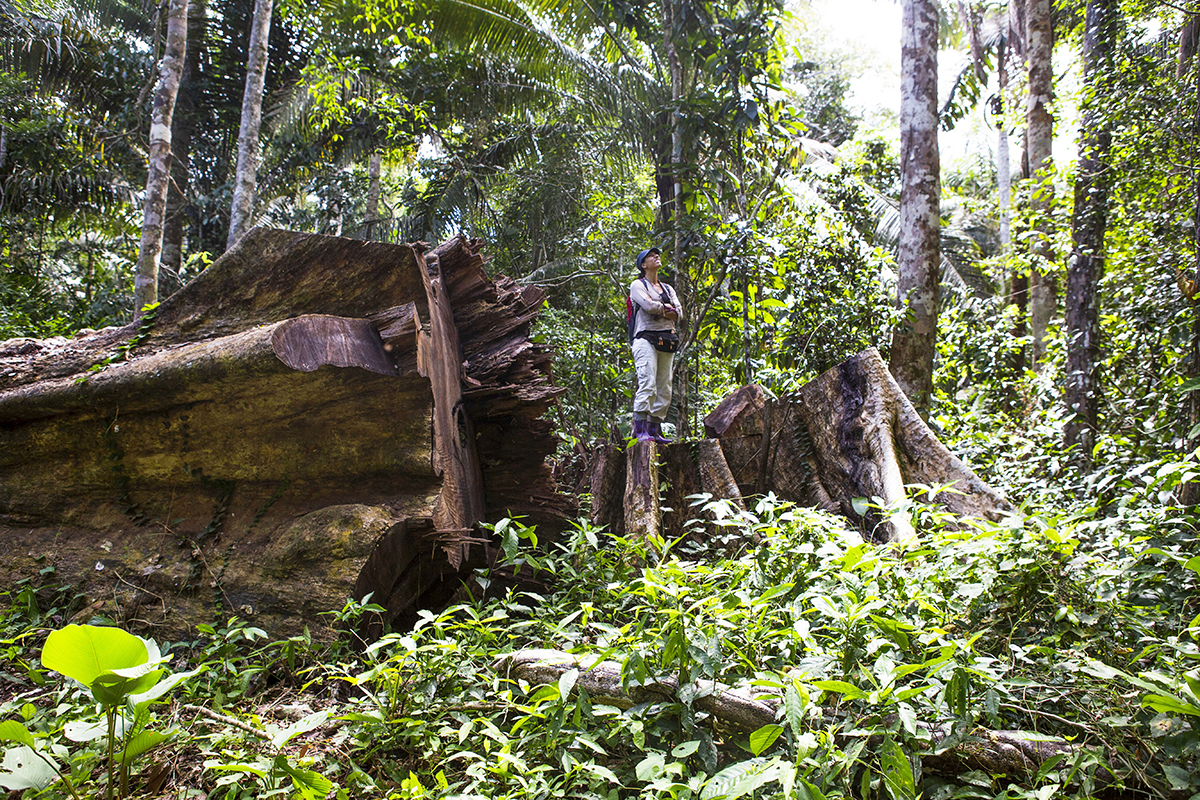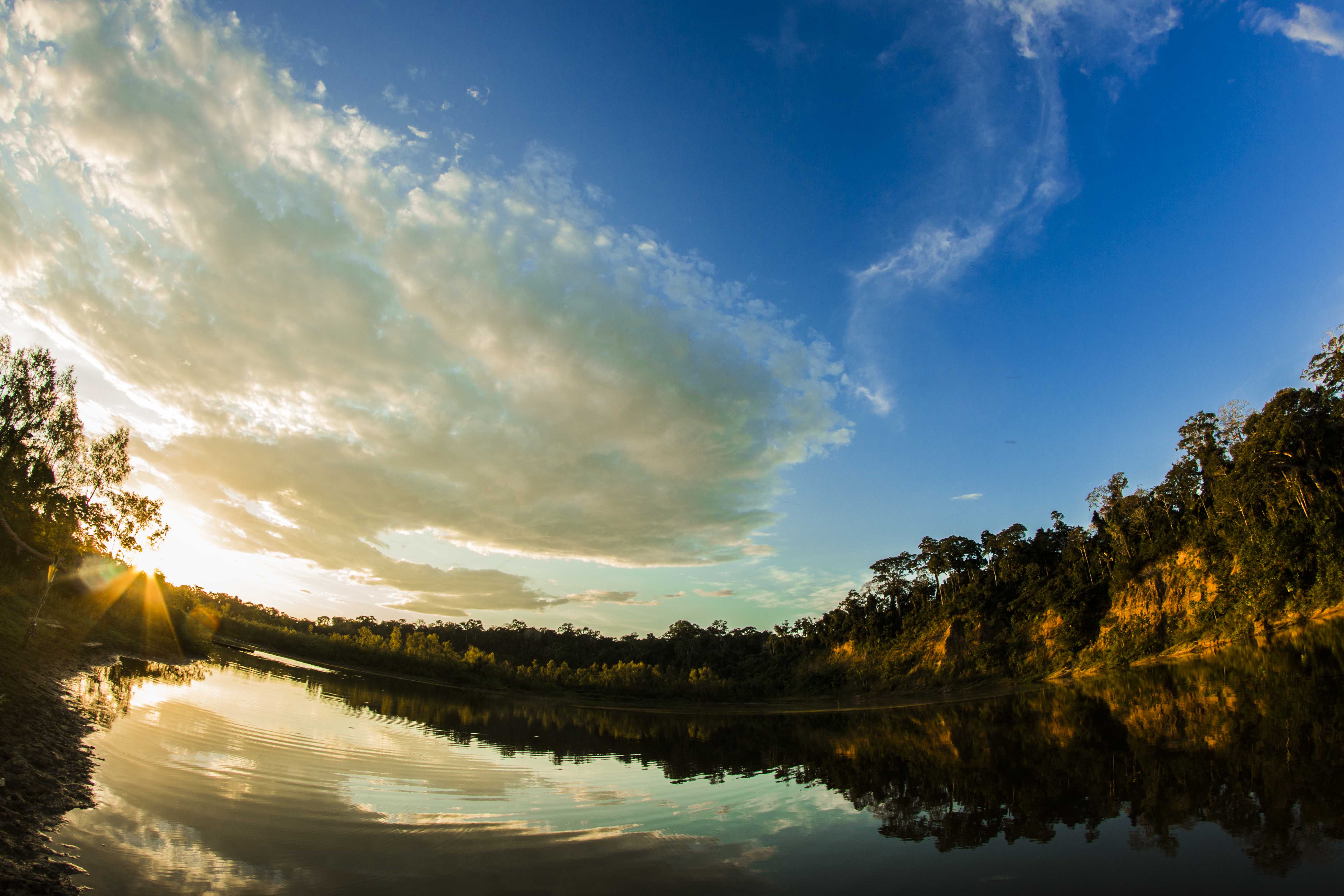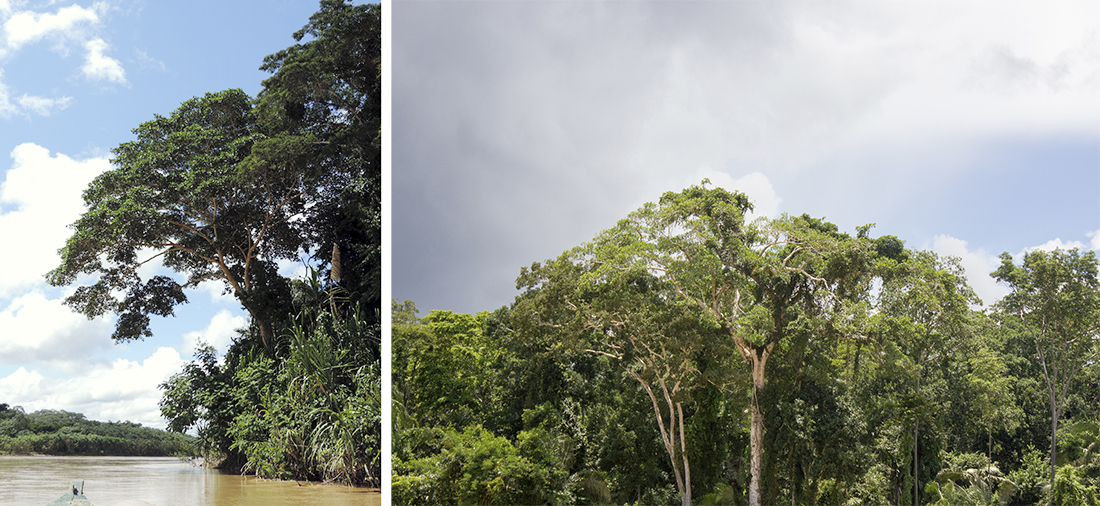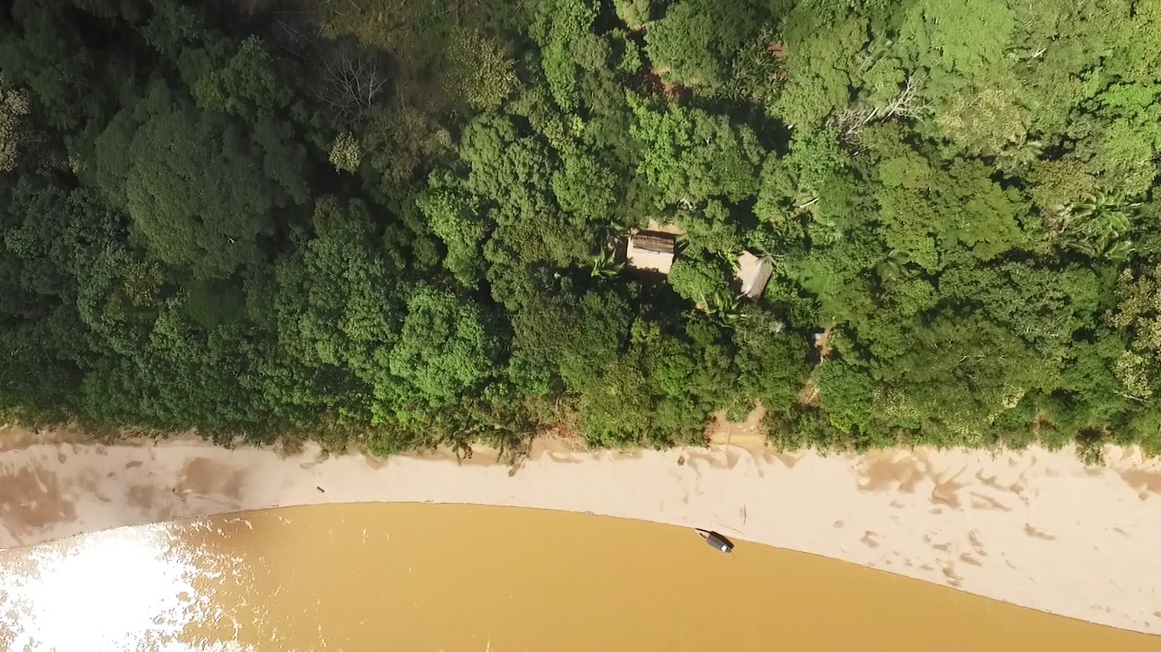Por: Rocío Espinosa / Tatiana Espinosa
The education provided to us by schools and universities growing up is based on the human being as the center of the world, and thus we get taught how to utilize and reap benefits from the resources around us with only our near future in mind. This mentality of extraction and profit has led us to exhaust the resources at a global level — such is the reality we see every day in the rainforest.

Priceless forests
The resources a forest provides us (and every other species in the planet) are incalculable due to its diversity, ranging from climate regulation, the water cycle, to being a carbon reserve and source of oxygen, among other things. But nobody seems to truly grasp the value of all this, and it has to do with the fact we have yet to put a monetary price on it.

Photo: Germán Chavez
Much is said about the ecosystemic value the forests give us, but the truth of the matter is: there isn’t a concrete value yet. It’s because of that lack of information and the ignorance it creates about what a whole hectare of forest truly means, save for the monetary value of its wood, that we continue to destroy it.
Because the value of a square meter of Shihuahaco floor has monetary price, because a ton of soy or corn has a delightfully tempting value, and because a kilogram of papaya for panettone candied fruit is a highly profitable business. And if this has a monetary value of, say, a thousand dollars per hectare, then there’s no doubt people are going to want to take part in this business because, well, it is profitable.
The previous generations were incapable of assigning a proper value to the forest
Are we going to wait to be told what this value is by officials in climate change summits, who are experts in measuring these values from the comfort of the cabinets? Are we going to wait for the banks to be the ones to tell us what a hectare of pristine, healthy forest is worth under the standard of their made-up financial intermediation products, like the carbon bonds market?

Why don’t we, who are already here and ready to take action, try our hands at this? Why can’t we start something concrete from universities and schools?
Costa Rica is a wonderful model to take into account
The government pays 60 USD a year for every hectare of those who dedicate themselves to the conservation of the forest. That’s why the ecotourism industry has grown so much there – the hotel chains keep their natural areas safe and cared for and stay on business in them. We don’t expect our government to give that same treatment to concessionaries here, but it is a fine example of what we could all do together if we understand that’s one way to save our Amazon, our forests.
Paying for a conservation service which we all benefit from
If we don’t do something along those lines, if we don’t acknowledge conservation as the priority it must be to save the rainforest, then we will just keep repeating the same old pattern of selective logging, deforestation, burning, monocultures; extinction.
